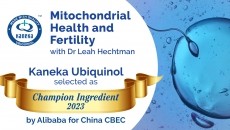Beta-carotene, lung cancer study flawed: Experts
Reacting to the results of a population-based study that reported long-term supplementation with beta-carotene may increase a smoker’s risk of lung cancer, Prof. Hans Konrad Biesalski from the Institute for Biological Chemistry and Nutrition at the University of Hohenheim said: “The obvious weakness of this study lies in its methodology.”
Researchers from the University of North Carolina at Chapel Hill reported their findings in the American Journal of Epidemiology.
The study also found that use of retinol and lutein supplements for four years or longer was associated with increases in lung cancer risk of 53 per cent and 102 per cent, respectively.
But Prof. Biesalski said that the reliance on a questionnaire was a vital flaw. “For this study participants were asked to give details from memory of food supplements which they had taken in some cases 10 years ago,” he said.
“It is hardly conceivable that the subjects were able to remember accurately enough in which sequence, how frequently and in what composition they had taken products containing micronutrients in the previous four or ten years. Thus, the data on the intake of vitamins which the authors gathered from the questionnaires are in some cases very difficult to follow.
“The validity of the questionnaires used and above all the conclusions drawn from them are therefore questionable,” he said.
Lies, damn lies, and statistics?
Prof. Biesalski also questioned the statistical analysis performed by the Chapel Hill researchers, stating that the discovery “for the first time that it is not the absolute dose that increases the risk of lung cancer, but the length of time of use. This is not surprising, since recall of dosages is surely even more dubious than recall of preparations,” he said.
“However, it is just this consideration of intake in the more distant past based solely on memory which represents an essential weakness of the VITAL study,” he added.
Jumping to conclusions?
In addition to questioning the methodology and statistical analysis, Prof Biesalski also said that the arguments of the authors were “speculative and in some cases contradictory”.
He draws particular attention to the indication that the results would require long-term use of high dose supplements.
“That large intakes interfere with the absorption, transport and distribution of other nutrients and could thus possibly have an adverse influence on other micronutrients is difficult to follow, since, according to the study, the incidence of lung cancer was dose-independent and only related to the duration of intake,” said Prof Biesalski.
“Numerous epidemiological studies confirm a preventive effect for lung cancer from a balanced, carotenoid and vitamin rich diet,” he added. “Clearly, however, micronutrients alone cannot compensate the consequences of harmful behaviour such as smoking.”
Smoking causes cancer!
Also commenting on the study, Andrew Shao, PhD, vice president, scientific and regulatory affairs, CRN, a trade association, said that it was important to point out that the number of incidents of lung cancer cases in this study was not great enough to stratify the effect of antioxidant supplements on non-smokers.
“As the researchers themselves point out, ‘lung cancer cases among nonsmokers was small.’ Dietary supplements are not meant to be used as magic bullets to undo a lifestyle of unhealthy habits, such as smoking - rather, they are meant to be used as part of a healthy lifestyle, such as eating a healthy diet, exercising and not smoking in the first place,” said Dr Shao.
“This study simply adds to the vast evidence base already showing that smoking causes lung cancer. The conclusion is simple and has nothing to do with supplements: smoking increases the risk of lung cancer," he added.
To read our report of the study, please click here.












